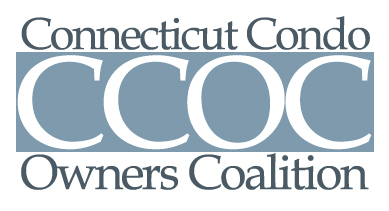Ct Condo Complexes Face Potential Financial Hardship As A Result Of A Judge’s Ruling
Condominium owners around the state face potentially higher fees as the result of a recent Superior Court ruling which limits dramatically the responsibility banks have to pay condo common charges in foreclosure cases.
New Haven Superior Court Judge Michael G. Maronich ruled that condo associations are limited to six months in fees that they can force banks to pay in case of a foreclosure.
That means that if it takes three years for a bank to complete its foreclosure, the rest of the unit owners in the complex will have to pay higher common charges for two and a half years to make up for the loss.
While a large complex with 100 or more units might be able to absorb one or two lengthy foreclosures, small complexes could be devastated.
“A complex with only six units would lose one sixth of its income,” said Hamden Attorney Kristie Leff, who represents Lake Ridge Condominium Complex in Meriden, with 56 units, which lost the ruling to Bank of America.
That November ruling ran counter to what the actual practice had been in Connecticut where banks traditionally paid all the condo fees that had accrued.
That practice goes back to 1984 when state condo laws were established, including giving associations first priority for up to six months of common charges in case of bank foreclosure.
The only known exception was in 1995 when a bank insisted that state condo laws limit to one six month charge it had to pay the association. The bank won the case as the judge ruled that once that six month in fees were paid, the bank had no further responsibility to the association.
Despite that ruling, other banks did not follow suit and continued the practice of making condo associations whole, said Leff and other attorneys who represent associations.
The issue may not have been important years ago when there were few foreclosures and most of them took only a few months to complete.
But now because of the housing market meltdown, thousands of foreclosures, improper bank court filings, and the huge losses faced by banks, it can take years instead of months to complete a foreclosure.
Banks may also benefit by delaying taking title to a property to avoid having to pay the common charges.
Other banks are now paying attention to Maronich’s ruling.
According to lawyers representing condo associations, banks are filing legal challenges to associations attempting to collect more than six months of fees. Leff says she is aware of at least 12 such challenges, none of which have been resolved yet.
Bank of America declined to comment on this story.
Leff says Maronich misinterpreted the six month priority lien provision of the condo laws. Maronich ruling says that no matter whether the association files for foreclosure or the bank files, the maximum that an association can force a bank to pay is six months.
Leff says the six month priority lien should only apply when a bank forecloses and not when a condo association files legal action to collect its fees.
If other judges agree with Maronich’s ruling, “it will have dire consequences” said Leff.
Appealing Maronich’s ruling or another ruling that goes against associations will be difficult because of the high cost of an appeal, she says. Plus, the losing side can be forced to pay the legal costs of the winner.
“Condo associations don’t have the big bucks to fight the banks,” said Leff.
The Community Associations Institute Connecticut – which represents associations, condo lawyers and property managers, says it considers this a crucial issue and has put out a “Special Alert. Will Small Associations Continue To Subsidize Big Banks?”
It is seeking donations to mount an appeal and is also seeking legislation that would protect condo associations in cases where unit owners stop making payments on their mortgages and for their common charges.






2/11/13
Does the condo association’s management company have to issue a certificate for closing when there is a buyer for a condo that has fees are owed?
bank takes over and has to go by rules of the condo association.
the right not to pay condo fees by the bank is to drive all properties their values down.
condo fees are for the maintenance/repairs of the land situs
common ground all condo owners, result in land value depreciation or increase common fees.
in condo loans approved by banks, mortgage loan sum/interest,
terms length payoff principle, re taxes, homeowners insurance
and common fees are the calculations monthly payments by the lender (bank=mortgagor) presentable to the mortgagee/entering for a contract of obligations—aware increases of monthly costs rising for re taxes,home owners insurance and common fees.
where its a fixed rate for interest over length of time that
payment remains the same.
late fees once a monthly obligation is not paid specific date are being charged payments owed to the bank. most banks work with their client not to file for a foreclosure and equitable redemption laws provide someone to refinance to restructure their monthly costs with roof. it goes along with incomes.
bank use 1/3 net incomes ratios to approve a loan, knowing cost of living exspenses of the person(s) and also dependents
the have as earners.
if the bank contract of the loan entitled the person(s) to pay ther home owner’s insurance and common fees seperately, then in foreclosures these would be seperate civil actions,as could also be credit cards or credit retail cards being used for for instance appliances/tv/light fixtures.
distribution property forclosed on gets settled by dates who files first the lien against the property itself.
in private homeownership foreclosures a lawn service hired can be filed with a mechanic’s lien.
property legal issues brought before the court pertain to the property envolved only=land/dwelling. just like private residential real estate requiring maintenance land/dwelling the outside, same goes along with condo ownership.
judge evaluating specifics contract with the bank and status with the property, always makes seperate court orders obligations of responsibities to be met by the person still at use and occupancy, not to effect the land value to drop.
common fees must be paid by the person at use and occupancy.
a person paid a down payment paid for closing costs and also a sum escrow (re taxes —- always the first lien). the bank is the second in line the lien, then come the others and can be the condo association able to file their lien once they find out bank files for foreclosure.
it is foreclosures that affect the condo complexes values of prices and result in increases of common fees over people further unable to pa y and live at their property. whether unemployment or the result of unforseen exspenses (could be medical bills)- it is a shame people run into binds in life which changes their lives and circumstances.
lega courts other than thproperty can
Well has a Unit Owner. This is Fantastic News. Since there is so much abuse by the Associations through our Connecticut of mismanagement of funds,lack of work on the common grounds,attaching fees and fines and raising condo fee when Work was never done. So yes This is FANTASTIC NEWS!!Thank you If other judges agree with Maronich’s ruling.
“it will have dire consequences” said Leff.” What about the Unit Owner who literally have NO RIGHTS!!!